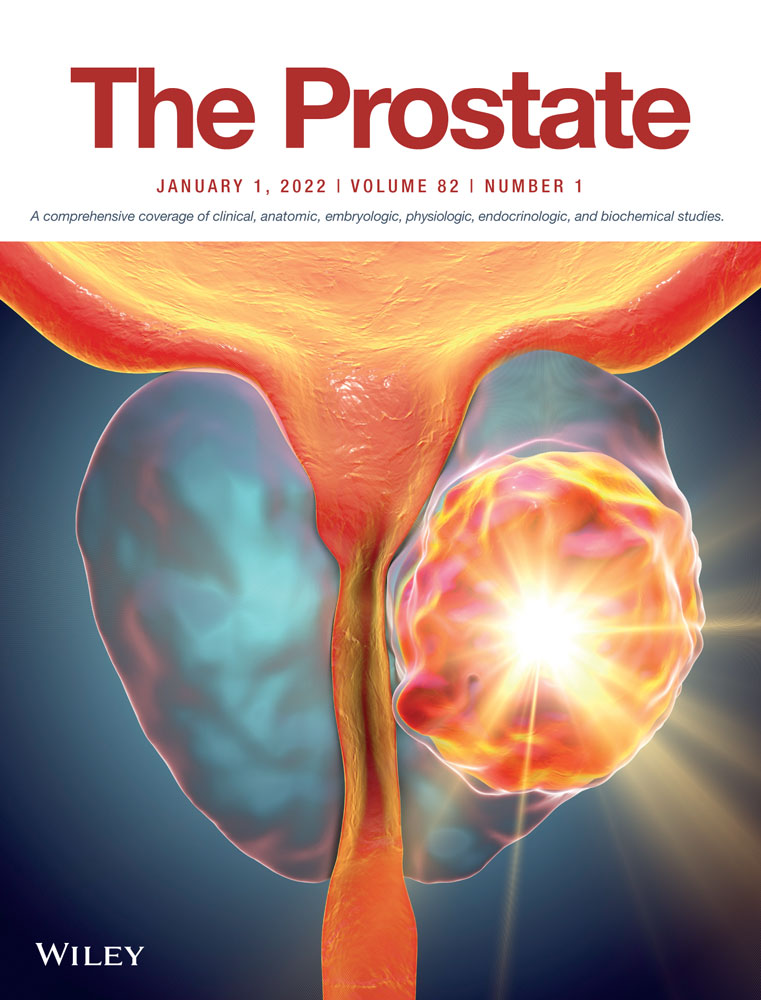Abiraterone acetate versus nonsteroidal antiandrogen with androgen deprivation therapy for high-risk metastatic hormone-sensitive prostate cancer
Abstract
Background
Although prostate cancer is a very common form of malignancy in men, the clinical significance of androgen deprivation therapy (ADT) with abiraterone acetate versus the nonsteroidal antiandrogen bicalutamide has not yet been verified in patients with high-risk metastatic hormone-sensitive prostate cancer (mHSPC). The present study was designed to initiate this verification in real-world Japanese clinical practice.
Methods
We retrospectively analyzed the records of 312 patients with high-risk mHSPC based on LATITUDE criteria and had received ADT with bicalutamide (n = 212) or abiraterone acetate (n = 100) between September 2015 and December 2020. Bicalutamide was given at 80 mg daily and abiraterone was given at 1000 mg daily as four 250-mg tablets plus prednisolone (5–10 mg daily). Overall survival (OS), cancer-specific survival (CSS), and time to castration-resistant prostate cancer (CRPC) were compared. The prognostic factor for time to CRPC was analyzed by Cox proportional hazard model.
Results
Patients in the bicalutamide group were older, and more of them had poor performance status (≧2), than in the abiraterone group. Impaired liver function was noted in 2% of the bicalutamide group and 16% of the abiraterone group (p < 0.001). Median follow-up was 22.5 months for bicalutamide and 17 months for abiraterone (p < 0.001). Two-year OS and CSS for bicalutamide versus abiraterone was 77.8% versus 79.5% (p = 0.793) and 81.1% versus 82.5% (p = 0.698), respectively. Median time to CRPC was significantly longer in the abiraterone group than in the bicalutamide group (NA vs. 13 months, p < 0.001). In multivariate analysis, Gleason score ≧9, high alkaline phosphatase, high lactate dehydrogenase, liver metastasis, and bicalutamide were independent prognostic risk factors for time to CRPC. Abiraterone prolonged the time to CRPC in patients with each of these prognostic factors.
Conclusions
Despite limitations regarding the time-dependent bias, ADT with abiraterone acetate significantly prolonged the time to CRPC compared to bicalutamide in patients with high-risk mHSPC. However, further study with longer follow-up is needed.
CONFLICT OF INTERESTS
Shin Egawa is a paid consultant/advisor of Takeda, Astellas, AstraZeneca, Sanofi, Janssen, and Pfizer. Takahiro Kimura is a paid consultant/advisor of Astellas, Bayer, Janssen and Sanofi. The remaining authors declare that there are no conflict of interests.
Open Research
DATA AVAILABILITY STATEMENT
The data that support the findings of this study are available from the corresponding author upon reasonable request.




